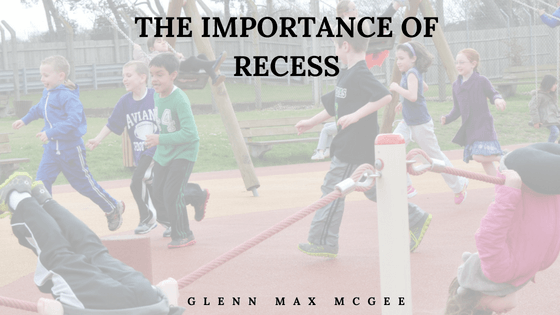Tag. Kickball. Four Square. Wall Ball. Double Dutch. Basketball. King of the Hill. Soccer. Sidewalk Chalk … When you think of elementary school kids, you most likely think of them running around outside and playing. Young children have an abundance of energy and coupled with their endless imagination, they can play outside for hours on end. In the past twenty years, however, an increased emphasis on standardized testing as a metric for student achievement has driven school leaders in many states and school districts to cut into recess in favor of more in-class instruction time. What are the benefits of recess and why is it so critical that children have access to recess every day?
Physical Exercise
The most obvious benefit of recess is the physical aspect that comes along with it. Nearly one in five American school children are obese. Obviously, recess is not a cure all for obesity, but it certainly helps! By promoting physical activity, an overweight or obese child will not only reap the physical benefits, but they will hopefully find an activity or sport that they enjoy and pursue it further on their own. When recess is not offered at all, these children who could use exercise the most, suffer even more.
Fewer Disciplinary Problems
Recess is a great outlet for children to get their feelings, frustrations and possible aggressions out in a healthy way. Whether that be through a rigorous game of kickball or even just a chat with a friend from another class, children will find an outlet for their feelings if we allow them an opportunity. The National Association for the Education of Young Children recommends unstructured physical play as a developmentally appropriate means of reducing stress. This is a hugely valuable benefit given that stress has a negative impact on learning and health. By taking away recess, schools are also taking away this meaningful outlet for children to decompress from the school day.
Teachers consistently report fewer disciplinary problems after kids are able to get out and play. Why? Children are people too, and they become restless after sitting for long periods of time. It is unreasonable to expect them to sit through an entire school day without any break for physical movement. A 2009 study found that eight and nine year-old children who had at least one daily recess period of more than fifteen minutes had better overall classroom behavior.
Natural Sunlight
Exposure to natural sunlight is something our bodies yearn for. Yet, we allow ourselves and our students to remain inside under fluorescent lights from seven a.m. well past 3 p.m. sometimes. Obviously kids shouldn’t be exposed to direct sunlight without sunscreen or protection for long, but Vitamin D is necessary for growth and good health. Recess provides exposure to natural sunlight that can increase mood and overall health.
Study after study proves that our children benefit from having recess everyday. The benefits of play time in children extends across academic, social and intellectual boundaries.

